Yes, I know how incredible that may sound to some, especially if your life hasn’t gone the way you expected. You’ve probably also had some painful experiences involving either someone else deciding against you in a single instance or many others using their agency across multiple instances. Maybe you’ve experienced both. But even if you’ve had the whole world against you, I still say seek and expect miracles. Believe in miracles We typically think of miracles as events that defy the laws of nature. For me, miracles are manifestations of one or more universal laws we don’t understand fully. This shift in perspective is essential to why I say we should seek and expect miracles. The perspectives we take and the assumptions we embrace are everything; they’re key components of our thinking, which produces our actions, which in turn produces our results. In the end, we all want results, so when we don’t get desired results, we need to examine our thinking. President Nelson begins his comments on miracles with this declaration:
First, he illustrates his concept with the words of a single adult! And this wasn’t just any single. No, Moroni had everything ripped from him. He witnessed the destruction of his people in a horrible war, leaving him to wander alone for the safety of his own life. Yet he still declared fervent belief in miracles. All lives have painful disappointments, but most don’t compare to Moroni’s. If in his circumstances he could find the strength to believe in miracles, could we not muster the courage to do the same? President Nelson continued,
It’s not just Moroni but every book of scripture declaring belief in miracles — all the more reason to question our perspectives and assumptions leading us to disbelieve in miracles. While we question, we should remember the Prophet’s caveat: Miracles can take time and may not unfold how we expect. So often LDS singles seeking a miracle expect something so inconsistent with universal law they take the absence of their miracle as evidence against miracles. Do the work
That last phrase caught my attention. How many LDS singles have approached their desire for a miracle “doubting nothing”? Most of us have doubts, some so much so they’re consumed by them. And yet “doubting nothing” is part of the price of faith we must pay for admission to the miracle show. That means we’ve got work to do. It’s no surprise then to see President Nelson’s next words:
How often have we advocated taking ownership of your life, or doing what’s in your power, or partnering with the Lord? Results come from only one thing — action. To score points, you must quit sitting on the sidelines and get on the field. So often the miracle we want is perfection delivered to our doorstep. In reality, we need to partner with the Lord, accept His guidance, and do the work that will create our miracle. Trust His promises
So many LDS singles wanting a miracle are faint. They’re weary. They’re beat down by the vicissitudes of life that point their gaze towards their weaknesses and imperfections, leaving them to wonder how their miracle could ever happen. But none of that matters when you partner with the Lord, for He “giveth power to the faint; and to them that have no might he increaseth strength.” With Him, we can do anything, even move the mountain seemingly standing before us. So yes, even if you’ve had the whole world against you, I still say seek and expect miracles. Believe they can happen for you. Partner with the Lord and do the work you must do to have your miracle. You can then live with confidence that in time your miracle will happen. And that will bring you more joy in your journey.
0 Comments
Sister Newbold acknowledges a common singles attitude: Identifying yourself by what you don’t have. When you do that, you’ll live in a space where you’re deficient. Sister Newbold’s response is an effective one: Live in a space where you see yourself as you’ll be, because that’s how God sees you. By living “as though” God’s promises are fulfilled, you can be joyful now. Understand the challenge Sister Newbold recognizes the difficulty of reconciling as yet unfulfilled promises with the reality of LDS singles life. Her answer is to live “as though” those promises have been fulfilled, though she admits that’s challenging. She writes, “Given that God is a God of promises, it becomes hard at times for me to reconcile why certain promises have not yet been fulfilled in my life.” I’m sure many singles can relate. I myself felt that challenge a few months ago. In the midst of my most challenging semester of school ever, questions about my patriarchal blessing began to feel more demanding. And given my age, I began to wonder how my promised blessings will ever come to me. Sure, it’s easy to say, “Well, sometimes patriarchal blessings get fulfilled in eternity.” But that doesn’t apply to the married life the Lord promised me. Very clear and unambiguous language speaks of my temple marriage in this life and actions my children and posterity will take in this life. These and other blessings are promised to me in this life, not the next. Given I’m in my late 40s and not getting any younger, questions of how those promises would be fulfilled troubled me. At the time, I really struggled with those questions. Now I simply feel a quiet confidence somehow it’ll all happen. Consider three solutions  Sister Newbold’s answer to that challenge, as mentioned earlier, is to live “as though” promised blessings have arrived. How do we do that? Sister Newbold shares three suggestions. First, she suggests considering a variety of promises. LDS singles tend to fixate on the marriage they by definition don’t have right now. That focus blinds them from seeing other promised blessings they already have, many of which they take for granted. Recognizing these less appreciated but bountiful blessings invites gratitude and trust God will keep all His promises. Second, she suggests recognizing God’s hand in our lives. Many in today’s world focus on what they lack, and as long-time audience members will tell you, your focus becomes your reality. Focusing on lack creates a reality of scarcity, which inhibits the ability to feel joy. But focusing on what you have creates a reality of abundance. I really like how Sister Newbold extends that idea to the sacrament.
Third, Sister Newbold suggests helping the Lord keep His promises to others through Spirit-directed service. When you follow the Spirit’s promptings to help others, you can help answer their prayers. You can find joy in being the Lord’s hands. Trust in Him Honestly, I appreciate a perspective centered on our focus rather than the traditional and highly unhelpful ”Just hold faithful, and everything will be right in the next life.” Additionally, Sister Newbold readily admits that “trusting in His promises is not always an easy choice.” She also says “living ‘as though’ will look different for everyone.” I suspect that’s only true in the particulars. I could summarize what that looks like for her as making and keeping as many covenants as she can, in essence living all of the gospel she can. I think that would describe living “as though” for any LDS single. God will keep every promise made to every one of us. He has thousands of years of experience doing just that for the generations that came before us. And the Spirit can remind us of moments when He’s kept promises in our own lives. So we can trust He’ll keep every as yet unfulfilled promise. When we live“as though” by walking with faith He’ll do just that, we can be instruments in fulfilling His purposes, all the while experiencing the quiet confidence that somehow it’ll all happen for us. And that will bring us more joy in our journey.
Something’s missing here. It’s this truth: Results come only from action. If you don’t have the results you want, you’re not taking the right action. So instead of rationalizing your way out of doing what you need to do, learn what action you should take, and then take it. Your time is now. Give your all aright  Life won’t always go as desired. When it doesn’t, don’t just say, “Well, it must not be the Lord’s timing.” Concluding so prematurely will keep you from the real solutions you need. Too many LDS singles use the concept of the Lord’s timing as a crutch to excuse themselves from further involvement in their own eternal progression. We all want to believe we can get what we want without making any changes in ourselves, that we just need to keep the standards and then the Lord will just deliver our desired companion when the time is right. It’s an enticing yet deceptive argument. The universe doesn’t work that way. To reap the harvest, you must sow the seed for that harvest. To get a different harvest, you must sow different seed. And you choose what seed to sow. You can make you more attractive to your hoped for eternal companion. Giving your all to the right things always produces the right results. Seek to do more  Ultimately, happiness is not about doing the right things but rather giving your all to the right things. Without question the standards are some of those right things. So is holding to the iron rod. And so is eliminating habits that encourage potential companions to decide against you. So is changing the way you think so your approach to life broadcasts an attractive rather than repulsive energy. So is conquering your fears holding you back from achieving your potential. So is partnering with the Lord so you can know what steps you need to take today to turn your life around and capture all the joy He wants you to have right now. Rushing to conclude the Lord’s timing isn’t right just because you’re still single blinds you from seeing all you can do that’s right for you. You’ll never get right results without right action. No matter how much you’ve done, there’s always more you can do. Results come from action and only from action. Stop using the Lord’s timing as a crutch to justify inaction. You don’t get results from anything but action. Someone must act for you to get results. That someone is you, and your time is now. Partner with the Lord  That undoubtedly irritates some of you, especially if you’ve sincerely given your all to secure your companion. And I’m not discounting the Lord’s timetable for each of our lives. He knows not only what’s right but when it’s right. That’s why you need to partner with Him. When you do, you’ll know what you should do with the time you have now. For most LDS singles, now is the time to take action to move towards eternal blessings. It’s not just about keeping the standards. It’s changing the way you think so you embrace a new way of being that makes you more attractive. That’s the real secret. Marriage is best pursued indirectly, not directly. When you choose to make the right changes in you, you drastically increase the likelihood someone you want will want you. Partnering with the Lord will help you know what changes are best for you to make today that will attract a brighter tomorrow. The Lord does have a right time for each of us to receive eternal blessings. But unless you’ve got revelation your time isn’t now, you’re choosing to be single when you use the concept of the Lord’s timing to justify your own inaction. For most LDS singles, your time is now. So get busy giving your all to all the right things for you. When you do, you’ll move yourself closer to the blessings you desire. And that will bring you more joy in your journey.
How did friendship come to be so bad? That’s totally upside down. Friendship is good, and when you understand the fundamentals of the dating journey, you can easily see you do want the Friend Zone. Understand your journey  It’s hard to get anywhere in any journey without having a good map and then getting your bearings on that map. That’s what knowing the fundamentals of the dating journey does. They provide that good map and help us get our bearings. One of those fundamentals is understanding the different stages. And the first stage of the dating journey is the Friendship stage. You’re in this stage when you first meet someone, and you’ll be in this stage until you start dating. In this stage, there’s no commitment of either party to each other; anyone can come and go as they please. That lack of commitment is necessary to foster each person opening up enough to let someone else know them better, which you need to foster true friendship. Friendship is the foundation of all successful long-term relationships. That’s why the Friendship stage is the first stage of the dating journey. Without friendship, a married couple won’t have the stamina to get through the difficult times and challenges that sooner or later come to every marriage. If you want to build something that lasts, begin with a solid foundation. Be where you are  The Friendship stage is where building that solid foundation starts. You don’t necessarily need to have that foundation completed before proceeding to the next stage. In fact, you’ll be building that foundation of friendship all along your dating journey. But you should have the core established before going further. Many singles encounter difficulty in their dating journey when they try to rush it. Seeing singleness as something to escape, they want it over as quickly as possible. That propensity to rush leads them to think they’re in one stage when they’re really in another. Singles progress more effectively through their dating journey when they consciously choose to be in the stage where they are. You may want to be dating someone, but if you’re in the Friendship stage, then be there. That doesn’t mean you don’t look for opportunities to date. It means you focus on friendship building skills you’ll need when you’re with whoever you do eventually marry. So when you’re in the Friendship stage, be in the place where you are. Focus on building friendships and enjoying people for who they are and what they have to offer without any expectation of getting something in return. There’s no commitment in this stage of the dating journey, so you don’t have to accept anything you don’t like. Enjoy the journey more  When you focus on being where you are, what was once complex and confusing becomes simple and clear. Truly being in the place where you are allows you to let go of worries and concerns about the future. You can’t cross a bridge until you get to it, so focus on crossing when you get there. Being in the place where you are also allows you to experience more joy in your journey. Because you’ve pushed aside concerns about future stages for when you’re actually in those stages, you’ve cleared the space for more joy to come into your life. You can learn to enjoy people for who they really are without concerns about what they might offer you in return. The friend zone then changes from the equivalent of some God-forsaken wasteland to a wonderful paradise of plenty where life just becomes enjoyable. And isn’t that what we all really want in the end?
Watch your focus  And yes, I said singles should ask that question of themselves. Your focus determines your reality, so if you don’t like your reality, take a look at your focus. Making that change on the inside can make all the difference in your world on the outside. And because we’re all designed to operate out of habit, whatever focus we do have we’ll continue to use over and over again. That’s great if your focus creates a reality you want and not so great if your focus creates a reality you don’t want. But it all starts within, so to change your reality on the outside, change your focus on the inside. If your focus in dating is all about you and what someone else is going to bring you, then you’ll likely attract only those with a similar focus. And the only reason they’ll want you is more because of what they think they can get from you and not so much with who you really are. Dating isn’t shopping  It’s little wonder we think this way. Modern dating has an increasingly online component, so much so that we bring to dating the same thinking — the assumptions, perspectives, attitudes, and habits — that comprise our online life in other aspects. And pretty much everyone spends a substantial proportion of that life online shopping. The Internet makes getting pretty much whatever you want so very easy. You look around at options from different offerings, compare prices, read and weigh reviews, and make a purchase. A couple or so days later, your order arrives right at your door. There’s no need to go anywhere. And if what you get isn’t really what you want, you get rid of it. We do the same thing with dating. We swipe past photos of potential candidates who aren’t cream of the crop, filter profile details, and maybe read what others write. We’d never reach out to a company offering an inferior product; we simply wouldn’t buy. So why would we even think about talking to a dating candidate offering what appears to be an inferior candidacy? The “right” one will arrive on our door in a timely manner and just lift us into bliss, because isn’t that what happens when your relationship is really right? Find real happiness  Are you catching the focus in this common approach? It treats people like things, which of course trips us up because people are not things. But it’s also all about what you get. And that’s completely backwards because happiness in marriage is more about what you give than what you get. Long time audience members will know I define happiness as giving your all to all the right things for you. Notice there’s no getting in that definition. It’s all about what you give, and it’s giving all of you to all that’s right for you. Certainly your spouse counts as one of those right things. Now I’m not suggesting we’re all interchangeable parts who can just marry anyone and be blissfully happy based entirely on what we give. The relationship we’re talking about here is a two-way street; it can’t be all give and no get, for either partner. But too often we focus so much on the getting that we ignore the more major contribution of the giving. So instead of asking, “What will this person bring?” when evaluating a dating prospect, ask yourself, “What will you bring?” When you focus on getting good with you on the inside and making the changes to make you the best you you can be, in that process you’ll cross paths with someone who’ll want to share the life you’re creating, a life in which you each give to each other the best you each have to give. And that will bring you more joy in your journey.
Covenant men and women, on the other hand, value covenants over all else. When an opportunity to gain something desirable for themselves comes along, they choose to make and keep sacred covenants, despite whatever they may lose for themselves. They in essence say, “Something better may come along, but I choose my covenants. Here I stand, and this is it for me.” Recognize the natural  That difference may seem obvious. But too many LDS singles prioritize self over sacred covenants. I’m not talking about people going inactive or apostate, although you could apply it that way. I’m talking about singles rejecting great candidates simply because they aren’t the absolute “best.” What drives this behavior? Singles mistakenly assume if they don’t marry the “best” they’ll be condemned to an unhappy future. Approaching dating with this faulty assumption, the natural mindset either ignores or rejects candidates who would make excellent companions and bring a life of real joy and happiness. That’s because natural men and women believe you must have the absolute “best” to be happy. That natural mindset also drives behaviors that give dating its all too painful reputation. For instance, ghosting wouldn’t exist without the natural mindset. Singles who ghost dating candidates essentially prioritize their own self-gratification. What they want — be it avoiding an uncomfortable conversation or pursuing a more attractive candidate — matters more than how others feel. This doesn’t mean you should always surrender to what others want. It just means you should be respectful of others as you search for the best path for you. Recognize the covenant If the grass is always greener on the other side, natural men and women will look to get to that other side. They gladly chase after anything better for them because to them what they want matters most. In contrast, covenant men and women may see the same something better, but they value covenants above all. So if pursuing something better means breaking their covenants, they don’t pursue it. To them, making and keeping sacred covenants matters most. Now I’m not advocating marrying just anyone who’s active. You can have standards while prioritizing covenants. Suppose you’re choosing between two dating options: The first rates a 10 on a 10-point scale (with 10 being the best) but consistently pursues self-interest, and the second rates a 7 but consistently keeps covenants already made. The natural mindset urges choosing the first option, because 10 gratifies self more than 7. The covenant mindset also sees 10 is better than 7, but the covenant mindset encourages choosing the second candidate, because the covenant mindset prioritizes making and keeping sacred covenants. Now what if the second candidate rated a 3 instead? The covenant mindset could turn that candidate away, because a partner who doesn’t bring something to the table and serves as little more than filler material will make it harder to keep the covenants which the covenant mindset prizes. Clearly we need a sense of balance, but prioritizing covenants doesn’t mean other standards have no importance. Choose wisely  In reality, no one of us is entirely natural or covenant. We’re all a combination of both, just as we are all mixtures of good and evil, light and darkness, strength and weakness. The real question is “Which one will dominate your choices?” Many LDS singles stand in their own way of marriage because they allow the natural man or woman to govern their dating choices. True joy in married life comes from living the covenant mindset that says, “Something better may come along, but I make my stand here. For me, this is it.” This means you could “settle” for an allegedly “lesser” candidate and yet have the maximum amount of joy life offers. So be a covenant man or a covenant woman who will say, “Something better for me may come along, but I make my stand here. For me, this is it.” When you do, you’ll find your dating life as well as your married life more enjoyable. And that will bring you more joy in your journey.
These false assumptions actually create the struggle with knowing who to marry. That’s why singles looking for the presence of yes should instead look for the absence of no. Take your responsibility  We’re here in mortality to exercise agency. Our choices in this life determine our situation in the next stage of our eternal journey. We therefore bear the responsibility for our choices. That’s precisely why singles who look for some significant spiritual confirmation often struggle with knowing who to marry. Insisting God provide some unmistakable sign you should marry So-and-so means God carries responsibility for that decision. That’s not how it works, so insisting it should work that way only ends in frustration. We’re here in mortality to make choices. And we have responsibility for those choices. Pushing that responsibility back to God defies His plan for His children. Insisting on some definite spiritual sign says we don’t accept So-and-so until God tells us marrying So-and-so will work out well. It pushes back to God the responsibility for our choices that rightly belongs to us. Make your choice  We naturally want the security that would come from God revealing to us So-and-so is someone we should marry. But that’s not how it works. A river journey tends to go smoother when you don’t fight the current by paddling upstream. You can paddle downstream by aligning your assumptions with eternally true principles. Instead of fighting God’s design for mortality by pushing the responsibility for your choices onto Him, go with the way it’s supposed to work by accepting that responsibility. Revelation from God comes after you make your own decision and then bring that decision you made to God to seek His counsel on your decision. God will then respond with yes, no, or maybe. If He answers yes, you’ll feel the strong, unmistakable impression He approves of your decision. If He answers no, you’ll feel a similarly unmistakable impression He doesn’t approve. And if you don’t get any strong impression one way or the other, He answers maybe, which means He trusts you to make your own decision. So unless the Lord answers no, you should go forward with your decision. If He answers yes, going forward is obvious. But you should also go forward if He answers maybe. If your choice would take you too far away from where He wants you, God answers no. So when He doesn’t answer no, you can walk forward in faith following through on your decision. Only if He answers no do you need to change course. So all you really need is the absence of no. Walk in faith  Singles stand in their own way when they insist on the presence of yes when approaching marriage decisions. But that faulty assumption also retards progress at any stage of the dating journey. So unless you get that overwhelming sense of no from the Spirit, you should include more people in your circle of friends, and you should casually date more of those friends more often. Especially in the early stages of the dating journey, you don’t need to receive revelation for every choice you make. Some might extend that to deciding who to marry. Regardless of how you feel about that idea, looking for the absence of no will have you making more progress more quickly in your dating journey. So if you’ve been waiting for the presence of yes before you move forward, it’s time to change your assumptions. Stop looking for the presence of yes, and start looking for the absence of no. Walk in faith the Lord will tell you when you’re traveling too far from the path He wants for you. That walk will breathe confidence in your gait as you gain more experience. With that experience, you’ll learn, grow, and make more and more better choices. And that will bring you more joy in your journey.
This woman says she disavows soul mates. But she also confesses both liking some of her current boyfriend’s traits and wishing he had other traits her former boyfriends have. She says she’s not being picky, but when you refuse to accept good enough I beg to differ. But how do you know when you have good enough? In my view, this woman stands in her own way. She’s so focused on what her potential partner has today she doesn’t seem to consider what he’ll have tomorrow. How can you avoid confusion when you try to decide for tomorrow using only the indications of today? Here we see the problem with position. Align direction  If you marry someone today, you don’t get the person you marry today. The person you marry today is the one you get 5, 10, 15, 20 years down the road. It’s not about position; it’s about direction. I’ve seen this in all my friends who got married. Invariably it’s the same story. Each partner is positioned at different points along the spectrum, which can be for anything from money to children to work ethic to whatever. As the two partners live with each other, each exerts a force on the other pulling the other closer. Eventually, they both end up somewhere in the middle between their original positions. The most satisfying marriages have each partner pulling the other in a desirable shared direction. When you and your partner want to go in different directions, tension will always be in the relationship. But when you align yourselves to go in the same direction, the energy that went into tension now goes into propelling each of you towards perfection together. Becoming better partners makes you better people. Prioritize direction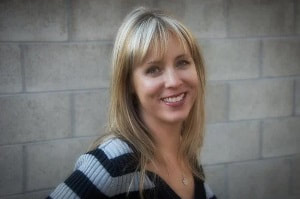 That’s where I see this woman having her biggest problem. Her considerations don’t seem focused on direction. Her comparison of different boyfriends seems focused on position, like asking, “What can my partner offer me today?” A focus on position is incredibly shortsighted. Your position today says nothing about your position tomorrow. You could have the best position today, but with a bad direction, tomorrow you’ll be worse off. Conversely, even if you’re in a very bad position today, with a good direction you’ll be in a good position tomorrow. Position means nothing. Direction means everything. Yet most LDS singles assess dating partners almost universally on position. It’s like using the wrong tool for the job. Sure, you can fell a tree with a pocket knife, but it’d be much easier with a chain saw. Likewise, in making a decision that will affect your life tomorrow, you should consideration where your life will be tomorrow. Direction gives a far more accurate indication of that than does position. Assess direction  Now I’m not advocating you ignore position. You can’t progress in your dating journey without an agreeable enough partner — that’s a fundamental principle of dating. Often that means your partner should bring something to the table today. Having nothing to offer just doesn’t make anyone agreeable to anybody. That said, direction always has more importance than position. Yet in our instant gratification microwave world, we’re often not patient enough to assess a quality like direction that takes time to assess. The problem with position is one of patience. Patience is then the ready solution. Get to know people. Stay in that dreaded “friend zone” with someone, because it’s more important you like rather than love your partner. Spend some more time getting to know more people in the casual dating stage. That experience will help you better assess the direction of each potential partner. And so it goes for the rest of your dating journey. Prize direction over position by taking the time to assess direction. With that priority, you set yourself up for success because the person you get 5, 10, 15, 20 years down the road after you marry will be more aligned with your own direction in life. And that will bring you more joy in your journey.
Many singles hold to that assumption under the guise of having standards. They seem to see themselves acting nobly in a chaotic dating world by adhering to their standard that insists on only the best. But such standards actually impede progress in one’s dating journey. So if you insist on believing you’ll be happy only with the most attractive companion, then you’re letting your standards keep you single. The falsity How does one progress in dating? As I discuss in my upcoming book about dating, to progress to each next stage of the journey, you must make an agreement. No agreement means no progress. Period. In the first stage of the dating journey, you meet new people and build friendships. In the next stage, you casually date candidates you’ve befriended. These activities require openness to social interactions. Otherwise, you’ll likely never get the agreement you need to progress from friendship to casual dating and on to exclusive dating. But assuming you can be happy in life only if your partner is the “best” or most attractive type limits those interactions. That faulty assumption will encourage you to engage only with those who meet your standards, because what’s the point, after all, in “wasting your time” with people who simply won’t do romantically because they aren’t the “best”? God’s plan  Mathematically, it just isn’t possible for everyone to have the “best.” Yet many singles cling tenaciously to the hope they’ll be one of the few to score just such a life partner. After all, no one wants to accept an unhappy and unfulfilled life. But happiness in marriage doesn’t come from what each partner has. Happiness in marriage comes from what each partner gives to each other. And what you give is a choice. If your partner has to be the “best” or most attractive sort for you to be happy, then God must have really messed up His plan. Check out these words from then Elder Gordon B Hinckley.
How can God’s plan provide happiness for all His children if 90% of people aren’t the “best” but just ordinary? Mathematically, 90% of singles can’t each have monogamous marriage with someone from the top 10%. At least 80% of singles will be left unhappy if only the “best” makes a happy life. Because God wants all his children to be happy, clearly happiness must be available without having the most attractive partner. The truth  And happiness is available to those couples who place honoring sacred covenants above personal desires by giving themselves fully to each other. Your companion doesn’t need to be the “best” or most attractive for you to give all of yourself to that person. Granted, it’s more easy to do the more attractive your companion is, but it’s not essential for happiness. The resistance many feel when confronted with such a choice is the natural man or natural woman in each of us. The natural man and woman value self-gratification more than making and keeping sacred covenants. Covenant men and women obviously reverse that value system. I’m not saying we’re interchangeable parts. You shouldn’t marry just anybody, and having standards does help with decision making. Far too many LDS singles, however, insist on standards around what really isn’t essential for lasting happiness. Elder Gerrit W Gong has taught,
Regardless of how you justify it, when you insist on having only the most attractive type of companion, your standards keep you single. Lowering those standards to accept more candidates into your dating pool doesn’t mean sacrificing happiness. Rather, it increases your chances of obtaining it. So reject the natural man and woman, open yourself to possibility, and you may find the blessings you’ve been seeking have been right in front of you all along. And that will bring you more joy in your journey.
Many LDS singles have habits of thinking that give zero consideration to that truth. Too often they put the cart before the horse by insisting that potential casual dates meet their marriage standards. This practice encourages equating dating with marriage, warping dating for everyone. Online dating only magnifies that ill perspective. If you don’t make an overwhelming first impression with your profile — and primarily your photo — in the first two seconds, you’re done. Treating people like commodities just keeps everyone single. Don’t close off possibilities  When you buy a commodity online, you expect what you buy to maintain its quality long after the purchase. A tool that works when you buy it should work years from now. Clothes you buy today should still look good years from now. Media that plays today should play problem-free years from now. And that’s where treating online dating like commodity shopping breaks down. People aren’t products that never change. People will change over time. The person you marry today isn’t the person you have today but the person you will have 5, 10, 15, 20 years down the road. But of course, none of that enters into our consideration when viewing online dating profiles. We don’t think in terms of potential and the direction people have for their lives. We think in terms of position and how well a candidate can satisfy us today. In so doing, LDS singles often close themselves off from possibilities to have the very blessings they seek. When considering dating opportunities, we should consider direction more than just position. We need to see others as they will likely become. Direction is more than position  We came to this mortal existence to grow towards perfection. Traveling on this path towards perfection means that none of us are perfect as we are now. Yet our Heavenly Father doesn’t condemn us for not having yet completed our journey. He knows we’ll eventually arrive at our celestial destination if we maintain the proper direction. And He knows we can always change our direction. How often LDS singles fail to take that perspective when dating! We too often prefer someone who provides present satisfaction over someone who’ll provide eternal satisfaction. Case in point: Most aren’t attracted to overweight suitors. Yet being overweight is merely position. What about direction? There’s a world of difference between the overweight person stumbling through diet and exercise and the overweight person doing nothing except crying over why no one wants to love them as they are. With your help, that person you discount today could be more than satisfactory tomorrow. Potential to change is not change  Of course, just because someone can change doesn’t mean they will change. For example, perpetrators of physical abuse can change, but that doesn’t mean you should trust them just because they can change. Potential for changing direction isn’t the same as actually changing direction. That’s why you must examine what people do when assessing their direction. What we do every day determines whether we end in one destination or another. And small changes today can result in large differences tomorrow. No one’s perfect in this life. We all miss the mark somewhere. But that doesn’t mean we always will. Your actions today can build a case that over time demonstrates a more positive direction, convincing those with eyes to see just what a find you really are. Seeing others for their potential can reveal doors of opportunity you didn’t know existed. Because no one’s perfect, the eternal companion you seek isn’t perfect. Learning to value others for what they will become because of their direction may help you find that companion who actually fulfills your needs more than you could ever imagine. And that will bring you more joy in your journey.
|
Author
Howdy! I'm Lance, host of Joy in the Journey Radio. I've been blogging about LDS singles life since 2012, and since 2018 I've been producing a weekly Internet radio show and podcast to help LDS singles have more joy in their journey and bring all Latter-day Saints together. Let's engage a conversation that will increase the faith of LDS singles and bring singles and marrieds together in a true unity of the faith.
Comment
Joy in the Journey Radio encourages the free discussion of ideas but reserves the right to remove and/or block comments which do not conform to LDS standards.
Donate
Joy in the Journey Radio offers many free resources to help LDS singles everywhere, but it certainly isn't free! Help Joy in the Journey Radio in its mission to improve the lives of LDS singles by donating today.
Posts by Month
December 2022
Categories
All
|



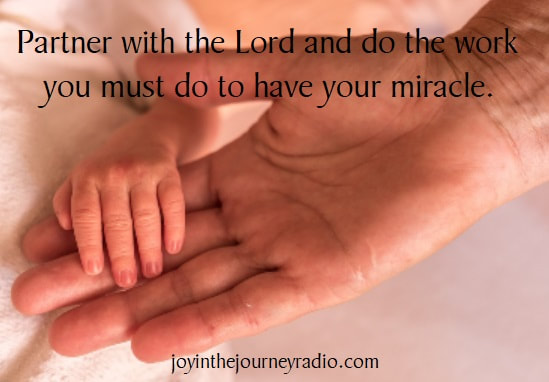



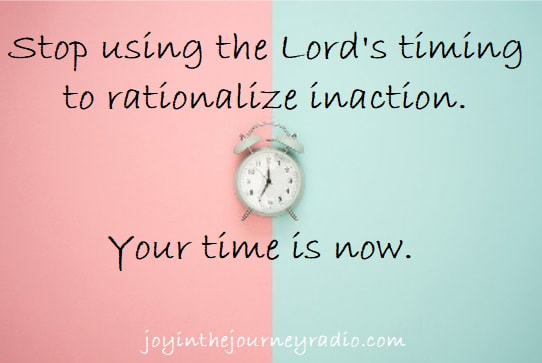

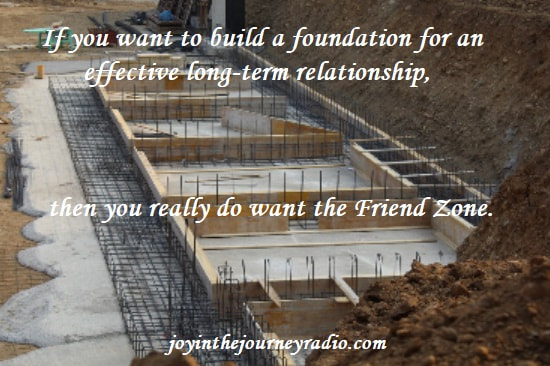



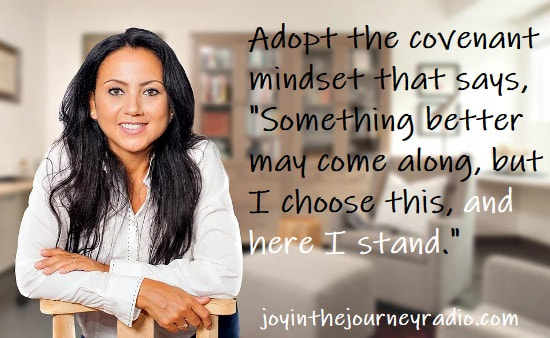







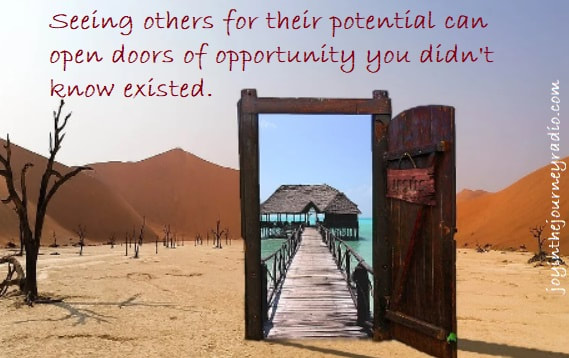

 RSS Feed
RSS Feed